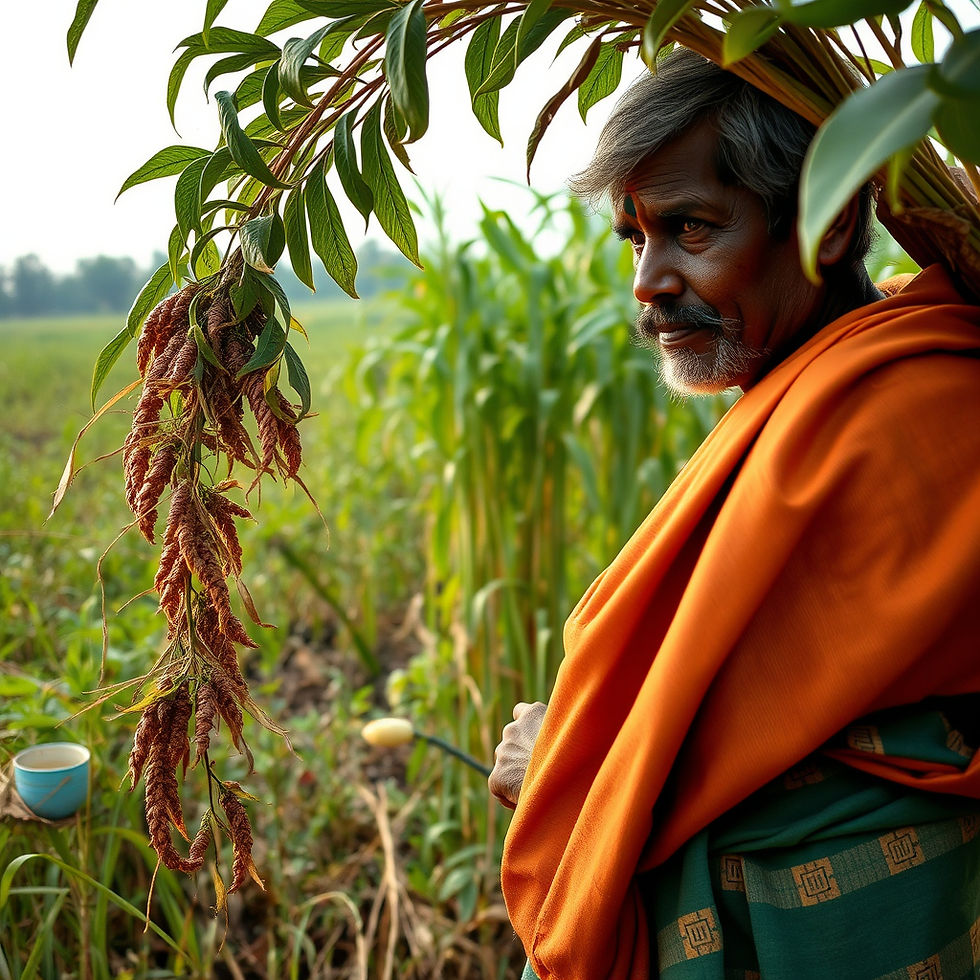Life of an Organic Farmer: Cultivating Sustainability and Community
- Saravanan G

- Jun 30, 2025
- 2 min read

In today’s fast-paced world, where convenience often trumps quality, the organic farming lifestyle stands as a beacon of hope, promoting sustainability, health, and community. But what does the life of an organic farmer really look like? In this blog post, we will explore the daily routines, challenges, and rewards of organic farming, shedding light on why this lifestyle is not just a profession but a profound commitment to the earth and future generations.
What is Organic Farming?
Organic farming is a method of agriculture that emphasizes the use of natural processes and materials. It avoids synthetic fertilizers, pesticides, and genetically modified organisms (GMOs) to cultivate crops. Instead, organic farmers rely on techniques such as crop rotation, green manure, composting, and biological pest control to maintain soil health and ecosystem balance.
The Daily Routine of an Organic Farmer
The life of an organic farmer is anything but monotonous. Here’s a glimpse into a typical day:
Early Mornings: As the sun rises, so does the farmer. The early hours are often the most productive, with tasks ranging from tending to crops, checking on livestock, or preparing for the day’s market.
Crop Management: Organic farmers spend significant time monitoring their crops. This includes assessing plant health, fighting pests naturally, and ensuring adequate water supply. They may use beneficial insects, like ladybugs, to combat harmful pests.
Soil Health Maintenance: A key aspect of organic farming is maintaining soil fertility. Farmers often engage in practices like, but not limited to, cover cropping and composting to enrich the soil. This not only improves crop yield but also enhances the ecosystem.
Community Engagement: Farmers often connect with their local community through farmers’ markets, workshops, or farm tours. This helps build relationships, share knowledge about organic practices, and promote the benefits
Organic farming is a lifestyle rather than being a profession. It has lot more impact on the society and contributes positively to future generation. I personally witness adverse change in climatic conditions since the time I moved closer to nature. Only change that can change this course is from everyone on life-style change. Cheers to YOU, fellow farmers!





Comments